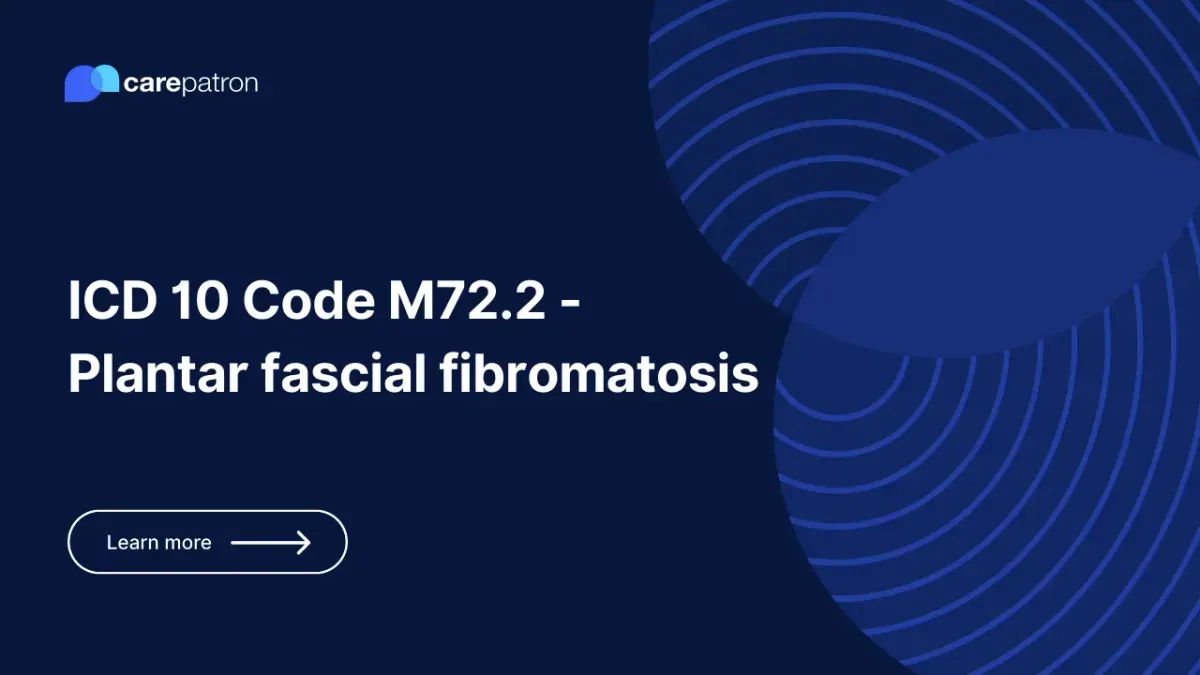
M72.2 – Plantar fascial fibromatosis
M72.2 is the ICD-10 code for plantar fascial fibromatosis, a foot condition causing heel pain and fibrous nodules in the plantar fascia.
Use Code
EHR and practice management software
Get started for free
*No credit card required
Free
$0/usd
Unlimited clients
Telehealth
1GB of storage
Client portal text
Automated billing and online payments
